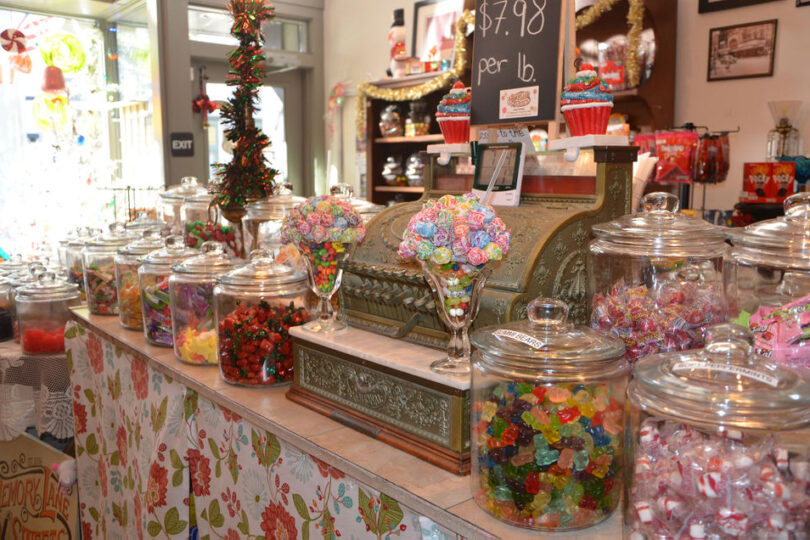A business plan is essential for any candy store, regardless of its niche. It provides a detailed look at how your business will operate and can be used to seek funding from banks or investors. Your unique selling proposition, or USP, sets you apart from the competition. It’s critical to develop and promote this to stimulate buyer desire.
Table of Contents
Stocking Your Candies
In addition to the typical sweetness that most candies give, certain sweets are blended with fruity, spicy, sour, or salty components to produce a distinctive and enjoyable flavor. Your candy shop will stand out if you have a selection of sweets with unique flavors, such as peanut butter, coconut, sea salt, chili, orange, lemon, cinnamon, etc. If you need to create your sweets, strategically plan to ensure that the bulk wholesale candy you buy from vendors will be pleasant and fresh when it gets to your clients. Typically, the shelf life of sweets decreases with increasing softness.
Market Research
A candy store can be fun for people of all ages to visit. If your business can attract a steady stream of customers, you’ll have a better chance at profitability. Performing market research is essential to gain insight into your potential customers, rivals, and industry trends. You can find information online and through local library databases and contact existing businesses for interviews.
Creating a comprehensive business plan that outlines your goals and strategies is important. It is an essential document if you’re seeking investors or financing. It should include a company overview, market and competitor analysis, financial projections, and an executive summary. Define your unique selling propositions that set you apart from the competition.
Location
A candy store is fun for adults and children of all ages. Whether you want to open a Willy Wonka-inspired wonderland or focus on specialty treats, there are plenty of ways to make money from this business. Before starting a candy store, it’s important to research the competition and find a niche in the local market. This tool can assist in identifying your ideal audience and suggest which products or services may be most appealing to them. Registering your business with the state and obtaining a seller’s and zoning permits and a business bank account is also a good idea. Keeping your business finances separate from personal accounts makes filing taxes and tracking revenue easier.
Lease or Buy a Building
Buying or leasing a building for your candy store is one of the biggest startup costs. You may need to rent a space that includes a commercial kitchen and a retail area, or you can separate these areas for the most flexibility. To make candy on-site, you must acquire the proper permits and licenses. Funding options for your candy store business include loans from banks and the Small Business Administration, venture capitalists or angel investors, and crowdfunding. Once your funding is secured, you can proceed with the rest of the startup steps. Branding your business will help create a memorable identity and attract customers. Launch a promotional website, social media accounts, and email marketing to spread the word.
Business Plan
A business plan is essential for any small business, but it’s especially important for candy stores seeking outside investors or loans. The plan should include a detailed explanation of the company’s niche, market analysis, and competition, three-year expense budget and profit projections, and marketing and public relations plans. Identify your ideal customers to help you craft the right marketing strategies. You can sponsor events or put up eye-catching signage to target affluent adults.
Consider the legal structure of your business. If you’re going to operate as a sole proprietorship, you can avoid costly legal fees and keep your assets safe. However, you’ll also be liable for all the business’s debts and losses. If you have employees, an LLC might be more appropriate.
Marketing
The world’s infatuation with candy is evident in every culture. Creating a one-stop shop capitalizes on that and provides customers with a convenient way to satisfy their cravings. Marketers must identify the target type and what will set their candy store apart. Having a unique selling proposition, or USP, is particularly important because consumers are inundated with buying options, so it’s necessary to convey the value of your product quickly. You’ll need to register your business with the appropriate local and state authorities and obtain any required permits, including a resale permit or food retail license. A strong business plan will help when seeking funding from investors or banks to launch your candy store.

Wow, wonderful blog layout! How lengthy have you been running a
blog for? you made blogging look easy. The overall glance of
your website is wonderful, as smartly as the content!
You can see similar here ecommerce
Hello! Do you know if they make any plugins to help with SEO?
I’m trying to get my site to rank for some targeted keywords but I’m not
seeing very good success. If you know of any please share.
Cheers! I saw similar text here: Backlink Portfolio